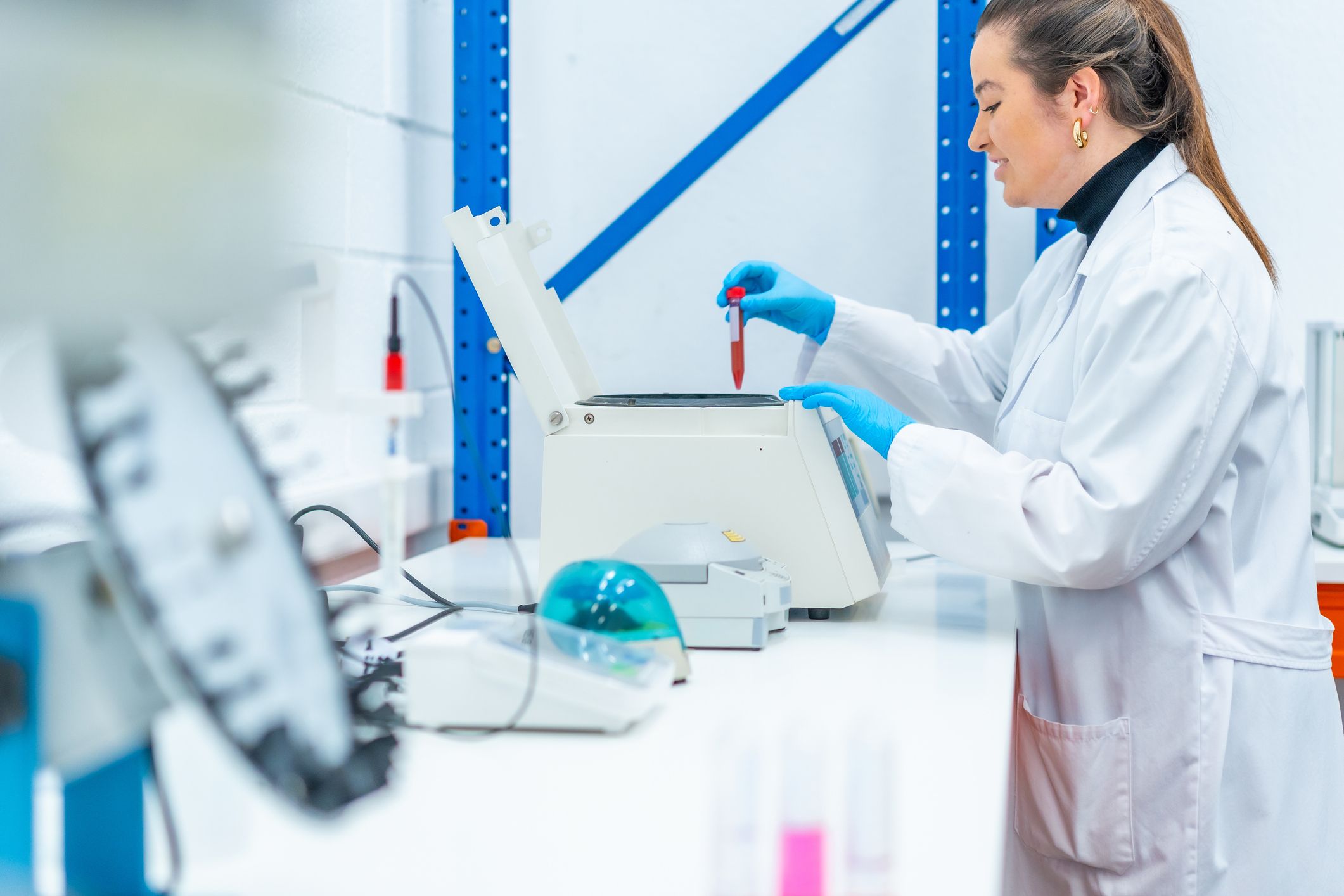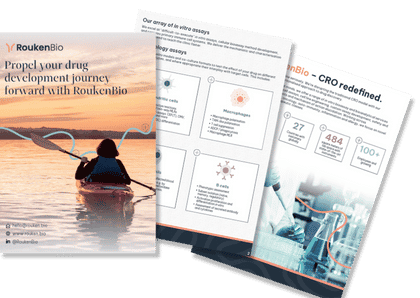The Future of 3D Modelling Complex Disease States
Dr Athanasios Koulis, RoukenBio’s new Knowledge Transfer Partnership (KTP) Associate, discusses our R&D team’s ambitious project that aims to change precision medicine.

|
October 21, 2024
|
5 min read
Dr Athanasios Koulis, RoukenBio’s new Knowledge Transfer Partnership (KTP) Associate, discusses our R&D team’s ambitious project that aims to change precision medicine.
At RoukenBio, Athanasios will be working on an exciting project developing tissue-based explant models, tumouroids and organoid capabilities for a range of 3D models. It’s part of our wider drive to develop tissue-based and 3D modelling services, evident in our recent partnership with ScreenIn3D. RoukenBio’s R&D team is led by our Chief Scientific Officer and fellow Greek, Dr Agapitos Patakas.
The Innovate UK Knowledge Transfer Partnership (KTP) is a collaborative project between the University of the West of Scotland (UWS) and RoukenBio, bringing together forward-thinking businesses, academics, and universities to solve complex innovation challenges. This approach is highly effective; 83% of companies experience increased productivity, profitability, employment, or turnover during a KTP.
With his extensive research background in cancer immunology, 3D organoid models, genomics and bioinformatics, Athanasios is a welcome addition to our R&D team. We caught up with him and Agapitos to discuss the move from academia to industry, the future of precision medicine, and the best Greek restaurants in Glasgow.
Mixing industry and academia
Athanasios’ work experience is diverse, delving into research, corporate business, and even high-school teaching. This is well-suited to the collaborative nature of the KTP associate role. The relationship between RoukenBio and the UWS is a sort of symbiosis: “[I] act as a bridge for transferring knowledge from the academic environment to the company, and vice versa, building a relationship that can blossom,” says Athanasios. “At the university, I do a systematic review of the field, and at RoukenBio I’m developing several platforms, benefiting both. Both academia and industry are rewarding. I like getting results but also without the pressure of getting results. It’s a yin and yang of theory and practice.”
RoukenBio is “a collaborative environment, with an exciting exchange of information. You can start the day not knowing something, then you share information and learn.” Agapitos chimes in, “You start the day not knowing something, then end up not knowing something else!”

The promising future of precision medicine
Their ambitious project aims to provide RoukenBio customers with tools to create physiologically relevant 3D models, which could be used for more accurate drug testing. “My dream for the future would be to provide precision medicine that tests individual patient tissues, to see which drugs would be beneficial within a clinically relevant timeframe. Meaning patients could get treatment as quickly as possible,” says Athanasios. “We need to materialise these ideas. This project is the first step.”
So, what is the future of precision medicine? “I’m not going to say everyone will have their own clones! But having a small amount of tissue characterised to diagnose current and potential future illnesses, and then profiled for drugs could be a big step for precision medicine. 3D models could have the potential to prevent disease or slow it down.” Agapitos adds, “Precision medicine could predict how medicine would work in patients, based on the response we get in the models.”
This could also deliver profound changes in the drug development landscape by reducing the controversial but currently necessary use of animal testing. “Organ-on-a-chip models are reaching the point where they can replicate and reduce animal experiments as representative models,” says Athanasios. “There’s a clear goal of removing or reducing animal models as much as possible,” agrees Agapitos. “Other than 3D models, organoid tumour tissue explant-based assays have huge advantages over current reductionist 2D cell culture models. However, this is a challenging model to develop. But ex vivo approaches could replace in vivo animal models in the future.”
This holds potential in more than just immuno-oncology: “We could model other diseases, like chronic inflammation or autoimmunity. We’ll focus on specific areas we can develop services in,” says Agapitos.
The importance of international perspectives in research
Both Athanasios and Agapitos are proponents of including international perspectives in research post-Brexit. “It’s very important because in every culture you perceive things differently and this drives new ideas. Local scientists understand how systems work within science in their particular country. However, if you move you can get more opportunities to work on interesting projects,” says Athanasios. Agapitos agrees, “international workers have a drive to succeed where they go.”
The pair are clearly excited about the potential impact the project will have for RoukenBio customers: “Hopefully in the near future we’ll have new services to offer,” says Agapitos. This is where Athanasios’ business acumen comes in: “I’m thinking from a commercial perspective, how we can do our research project to benefit customers directly.”
“Most big discoveries that create value were almost always created by chance,” says Agapitos. “In order to expose yourself to positive chance, you have to trial different things. We create value on the way to our final aim. It’s the same with the development of IndEx-2, we created a set of tools that are of more value than IndEx-2 itself. The process is more important than the final aim in creating services to support our customers.”
And the name of the project? “Something Greek”.
Join our community of curious minds on LinkedIn
🗓️ Stay informed with our monthly scientific newsletter, published on LinkedIn on the last Wednesday of each month.
These editions bring you the latest in drug development breakthroughs, industry trends, and expert insights from the brilliant minds at RoukenBio.
Subscribe today on LinkedInInterested in 3D cell assays?
In partnership with Screenin3D, we deliver advanced 3D cell platforms that can revolutionise your research.
Learn more

